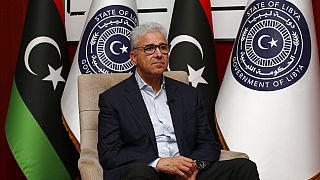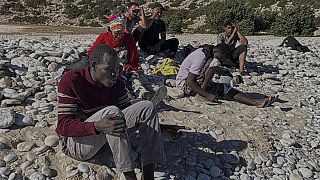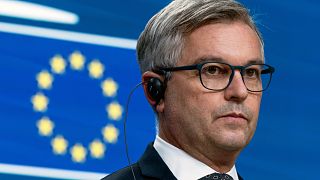Libya
Libya's parliamentary-appointed government, backed by powerful Field Marshal Khalifa Haftar, announced on Tuesday that it was pulling out of the capital Tripoli, the seat of the rival executive branch, after several hours of fighting triggered by its arrival.
Endowed with the most abundant reserves in Africa, Libya has been plagued since the fall of Muammar Gaddafi's regime in 2011 by a series of political crises and violence that are undermining the transition process that is supposed to turn the page on years of dictatorship.
In mid-morning, the press service of the government appointed by Parliament said in a statement that its Prime Minister Fathi Bashagha and several of his ministers had "left Tripoli to preserve the safety ... of citizens.
Earlier in the night, it had announced the arrival in Tripoli of Bashagha and ministers "to begin the work" of the government, but this had led to fighting for several hours in the city between armed groups, according to an AFP correspondent.
The AFP journalist was not able to identify these factions precisely.
Call for restraint
In the Tripoli area, both sides have the support of armed groups still very influential in the west of the country, but whose allegiances are traditionally shifting.
"Al Nawasi", a major militia group in the capital, welcomed Mr. Bashagha's entry on Monday night before he withdrew.
For its part, the government based in Tripoli, which emerged in early 2020 from a U.N.-sponsored political process, has not reacted to the events of the past few hours.
The UN Secretary-General's Special Adviser on Libya, Stephanie Williams, called on Twitter for "restraint", stressing "the absolute need to refrain from any provocative action".
In a video broadcast by local media, Bashagha said in the morning that he was "very well received" in Tripoli, and announced a press conference in the evening during which he would make "a speech of unity to the Libyan people.
And the Interior Minister of the Bachagha government, Issam Abu Zariba, had assured, before the withdrawal, that the government team would take office "peacefully" and "in accordance with the law. To facilitate the transition, he called on "all security forces (...) to cooperate.
In February, the parliament sitting in the east appointed Bashagha, a former interior minister, as the new Prime Minister. This body is supported by the powerful Marshal Khalifa Haftar, the strongman of eastern Libya, whose forces had tried to conquer the capital in 2019.
But Bashagha had so far failed to oust the incumbent executive in Tripoli, led by businessman Abdelhamid Dbeibah. Dbeibah has repeatedly stated that he would only hand over power to a government formed after elections.
Abdelhamid Dbeibah's government had as its main task the organization of legislative and presidential elections, initially scheduled for last December.
However, disputes between local political leaders, particularly over the legal basis for the elections, led to the postponement sine die of these elections, on which the international community had high hopes for finally stabilizing the vast North African country.
Mr. Dbeibah's political rivals believe that his mandate has ended with this postponement.











Go to video
Southern Syria: renewed violence between Druze and Bedouin clans
00:54
Haitians mark annual Voodoo-Christian pilgrimage amid gang violence
Go to video
Greece cracks down on irregular migration, says it’s "not an open corridor to Europe"
01:50
UN urges renewed political and climate action in Libya amid humanitarian and governance crises
01:19
Record number: nearly 1.3 million Haitians now internally displaced
00:54
Eleven Sudanese migrants dead after crash in Libyan desert